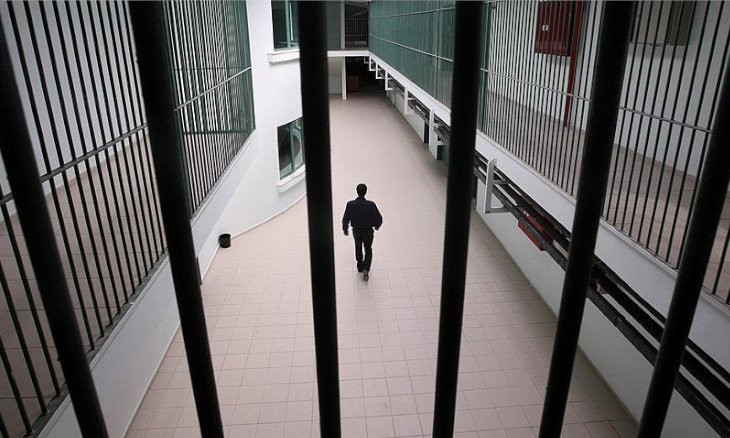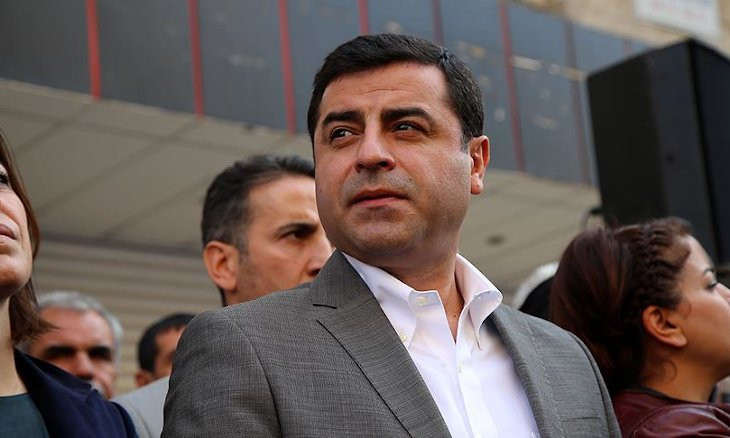Political scientist Cuma Çiçek says Erdoğan might issue amnesty to woo votes
Political scientist Cuma Çiçek has said that President Erdoğan might consider a general amnesty ahead of the upcoming general elections. “There are several people locked up, both from the Kurdish community and the Gülen organization. Therefore, he (Erdoğan) might issue an amnesty to keep the Kurds who voted for him (in the previous elections) and to stop the vote loss in the more religious community,” Çiçek told Gazete Duvar in an interview.
Ardıl Batmaz / Gazete Duvar
Political scientist Cuma Çiçek, the research director at the Diyarbakır Institute for Political and Social Research (DİSA), deemed the upcoming May 14 elections “the hardest elections that (President Recep Tayyip) Erdoğan faces” in his career and said that the president might issue an amnesty for prisoners to woo their votes.
“He (Erdoğan) does not have many instruments to persuade people politically, to keep his own mass by his side and to gather new masses. As far as I can see, one of his current instruments is the issue of earthquakes. By accelerating the house construction in the earthquake region and by making this visible, he might persuade people. Apart from this, they don’t have anything else to do economically,” Çiçek told Gazete Duvar.
He said that Erdoğan might enact an amnesty to stop especially Kurdish citizens from voting for the main opposition Republican People’s Party (CHP) or the Peoples’ Democratic Party (HDP).
“The prisoner issue is a very big issue in Turkey right now. There are several people locked up, both from the Kurdish community and the Gülen organization. Therefore, he (Erdoğan) might issue an amnesty to keep the Kurds who voted for him (in the previous elections) and to stop the vote loss in the more religious community,” Çiçek said.
“Let me underline once more. This could be a general amnesty to keep Kurds who (previously) voted for the (Justice and Development Party) AKP but who are now inclined to break away from there, instead of persuading the Kurds who voted for the HDP. Also, there is a great breakaway (from the AKP) in the Islamic community. There are votes going to DEVA Party, Future Party and partially to Felicity Party,” he said.
He said that there is yet no “signal” that CHP leader and opposition Nation Alliance’s presidential candidate Kemal Kılıçdaroğlu will solve the Kurdish issue. He said that the exclusion of the HDP from the Nation Alliance as well as the exclusion of the Kurdish issue from the opposition’s election manifesto show that they have no “promising attempt even in the mother tongue issue.”
“The Nation Alliance might not conduct politics with the HDP, might not include it in the alliance, but at least could have included the Kurds’ demands in the (election) manifesto.”
He said that although the Nation Alliance’s policy on the appointment of trustees to municipalities is “partially promising,” it does not still completely abolish the implementation. He said that the current law makes it possible for a mayor to be dismissed from duty should the prosecutor launch an investigation against them, whereas the opposition demands that the dismissal can happen with the demand of the court.
“(The opposition’s regulation) It says ‘Even if we dismiss the mayor, the person replacing them will be someone from among the municipal council,’ but this does not still abolish the trustee implementation. Even in the 1961 Constitution, there is a complete judiciary assurance for the municipalities. According to it, no authority can dismiss them as long as they do not receive any sentence. The Nation Alliance’s suggestion is more backward than that.”
Çiçek said that if the Nation Alliance assumes power in the May 14 elections, at least people might not be jailed as easily as today and people exiled abroad might come back to Turkey. But still, Çiçek is of the opinion that the opposition will not be able to bring a serious solution to the Kurdish issue, at least for now.
“We have currently three reference periods with regards to the Kurdish issue. Kurds have gone through the İmralı process, Oslo process, and 2013-2015 period, and some experiences came out of there. Some references such as ‘What is this issue, how would it be solved, what are its actors?’ came out. Unfortunately, the Nation Alliance can't take that stance further from those references…We can say that the Nation Alliance’s position with regards to the Kurdish issue is not very promising. A new resolution process would not immediately come out, but its probability would increase. I am of the opinion that a serious resolution process with regards to the Kurdish issue will happen in the next election.”
(English version by Didem Atakan)

 Top court rejects CHP's application for annulment of prisoner release law with regards to its 'form'Human Rights
Top court rejects CHP's application for annulment of prisoner release law with regards to its 'form'Human Rights Amnesty International launches campaign for release of political prisoners in TurkeyHuman Rights
Amnesty International launches campaign for release of political prisoners in TurkeyHuman Rights Main opposition CHP challenges new prisoner release law in Constitutional CourtPolitics
Main opposition CHP challenges new prisoner release law in Constitutional CourtPolitics I'm in prison because Erdoğan is afraid of me: Selahattin DemirtaşPolitics
I'm in prison because Erdoğan is afraid of me: Selahattin DemirtaşPolitics